Dabrafenib and Trametinib Followed by Ipilimumab and Nivolumab or Ipilimumab and Nivolumab Followed by Dabrafenib and Trametinib in Treating Patients With Stage III-IV BRAFV600 Melanoma
| Status: | Recruiting |
|---|---|
| Conditions: | Skin Cancer |
| Therapuetic Areas: | Oncology |
| Healthy: | No |
| Age Range: | 18 - Any |
| Updated: | 3/31/2019 |
| Start Date: | July 13, 2015 |
DREAMseq (Doublet, Randomized Evaluation in Advanced Melanoma Sequencing) a Phase III Trial
This randomized phase III trial studies how well initial treatment with ipilimumab and
nivolumab followed by dabrafenib and trametinib works and compares it to initial treatment
with dabrafenib and trametinib followed by ipilimumab and nivolumab in treating patients with
stage III-IV melanoma that contains a mutation known as BRAFV600 and cannot be removed by
surgery. Immunotherapy with monoclonal antibodies, such as ipilimumab and nivolumab, may help
the body's immune system attack the cancer, and may interfere with the ability of tumor cells
to grow and spread. Dabrafenib and trametinib may block tumor growth by targeting the
BRAFV600 gene. It is not yet known whether treating patients with ipilimumab and nivolumab
followed by dabrafenib and trametinib is more effective than treatment with dabrafenib and
trametinib followed by ipilimumab and nivolumab.
nivolumab followed by dabrafenib and trametinib works and compares it to initial treatment
with dabrafenib and trametinib followed by ipilimumab and nivolumab in treating patients with
stage III-IV melanoma that contains a mutation known as BRAFV600 and cannot be removed by
surgery. Immunotherapy with monoclonal antibodies, such as ipilimumab and nivolumab, may help
the body's immune system attack the cancer, and may interfere with the ability of tumor cells
to grow and spread. Dabrafenib and trametinib may block tumor growth by targeting the
BRAFV600 gene. It is not yet known whether treating patients with ipilimumab and nivolumab
followed by dabrafenib and trametinib is more effective than treatment with dabrafenib and
trametinib followed by ipilimumab and nivolumab.
PRIMARY OBJECTIVES:
I. To determine whether initial treatment with either combination ipilimumab + nivolumab
(with subsequent dabrafenib in combination with trametinib) or dabrafenib in combination with
trametinib (with subsequent ipilimumab + nivolumab) significantly improves 2 year overall
survival (OS) in patients with unresectable stage III or stage IV BRAFV600 mutant melanoma.
SECONDARY OBJECTIVES:
I. To evaluate the impact of initial treatment on median OS and hazard ratio for death.
II. To determine whether initial treatment choice significantly improves 3 year OS.
III. To evaluate the anti-tumor activities (Response Evaluation Criteria in Solid Tumors
[RECIST]-defined response rate, median progression-free survival [PFS]) and safety profiles
of ipilimumab + nivolumab and dabrafenib-trametinib in a Cooperative Group trial of patients
with V600 mutant melanoma.
IV. To evaluate the activity (RECIST-defined response rate, median PFS) and safety of
dabrafenib-trametinib in patients who have had disease progression on ipilimumab + nivolumab
and in comparison to its activity and safety in ipilimumab + nivolumab naive patients.
V. To evaluate the activity of ipilimumab + nivolumab (RECIST-defined response rate, median
PFS) and safety in patients who have had disease progression on dabrafenib + trametinib and
in comparison to its activity and safety in dabrafenib + trametinib naive patients.
VI. To assess the feasibility of crossover to the alternative treatment strategy (percentage
of patients who are able to crossover from one arm to the other and complete at least an
initial course of treatment after cross-over without intervening symptomatic disease
progression or treatment limiting toxicity).
VII. Association of inherited variation with immune mediated adverse events and response to
ipilimumab + nivolumab.
VIII. To determine the association of inherited genetic variation and immune-associated
adverse events in patients with metastatic melanoma treated with ipilimumab containing
regimens by completing candidate-based gene and pathway analyses of genes involved in
lymphocyte activation, cytokines, cytokine receptors and within the major histocompatibility
complex (MHC) region and an agnostic genome-wide single nucleotide polymorphism (SNP)-based
approach.
IX. To investigate the association between inherited genetics and survival in patients with
metastatic melanoma treated with ipilimumab containing regimens by completing candidate-based
gene and pathway analyses of genes involved in lymphocyte activation, cytokines profile,
cytokine receptors and within the MHC region and an agnostic genome-wide SNP-based approach.
X. To replicate genomic markers identified in the above aims in an independent sample set of
patients treated with ipilimumab containing regimens and preliminarily characterize their
potential functional role by completing replication of variation as associated with
immune-related adverse events (irAEs) and survival and bio-informatic assessment of genomic
markers.
XI. To determine the utility of circulating BRAF levels in determining the response and
resistance to either BRAF/MEK directed and/or combination immunotherapy in patients with BRAF
mutant melanoma.
XII. To determine if changes in blood BRAF levels utilizing peripheral blood BRAFV600
mutational testing in patients with stage IV BRAF mutant melanoma correlate with response and
resistance to combination BRAF/MEK directed therapy.
XIII. To determine if changes in blood BRAF levels utilizing peripheral blood BRAFV600
mutational testing in patients with stage IV BRAF mutant melanoma correlate with response and
resistance to combination immunotherapy.
XIV. To compare the kinetics of peripheral blood BRAFV600 levels during response and
resistance in groups of patients receiving BRAF targeted therapy or combination immunotherapy
as initial therapy.
XV. To compare the kinetics of peripheral blood BRAFV600 levels during response and
resistance to combination BRAF targeted therapy or combination immunotherapy in individual
patients (initial treatment vs crossover treatment).
PATIENT REPORTED OUTCOMES OBJECTIVES:
I. To evaluate differences in overall health between initial treatment arms (dabrafenib +
trametinib vs. ipilimumab + nivolumab immunotherapy) at 2 years, accounting for toxicities
and overall survival. (Primary) II. To assess differences in overall function over 2 years
between initial treatment with dabrafenib + trametinib vs. ipilimumab + nivolumab.
(Secondary) III. To document the effects of treatment crossover and treatment administration
sequence on symptom burden and overall function. (Secondary) IV. To compare differences in
function and symptoms by treatment sequence for ipilimumab + nivolumab (arm A vs. D), and
dabrafenib + trametinib, (arm B vs. C) at baseline, 6 weeks, 12 weeks, and 6 months after the
initiation of each treatment.
V. To describe the frequency and severity of treatment toxicities at baseline, 6 weeks, 12
weeks, and 6 months after initiation of each treatment.
EXPLORATORY TOBACCO USE OBJECTIVES:
I. To determine the effects of tobacco, operationalized as combustible tobacco (1a), other
forms of tobacco (1b), and environmental tobacco exposure (ETS) (1c) on provider-reported
cancer-treatment toxicity (adverse events [both clinical and hematologic] and dose
modifications).
II. To determine the effects of tobacco on patient-reported physical symptoms and
psychological symptoms.
III. To examine quitting behaviors and behavioral counseling/support and cessation medication
utilization.
IV. To explore the effect of tobacco use and exposure on treatment duration, relative dose
intensity, and therapeutic benefit.
OUTLINE: Patients are randomized to 1 of 2 treatment arms (Arm A or Arm B).
ARM A:
IMMUNOTHERAPY INDUCTION (COURSES 1-2): Patients receive nivolumab intravenously (IV) over
30-60 minutes and ipilimumab IV over 30-60 minutes on days 1 and 22. Treatment repeats every
6 weeks for 2 courses in the absence of disease progression or unacceptable toxicity.
IMMUNOTHERAPY MAINTENANCE (COURSES 3-14): Patients receive nivolumab IV over 30-60 minutes on
days 1, 15, and 29. Treatment repeats every 6 weeks for up to 12 courses in the absence of
disease progression or unacceptable toxicity. Upon disease progression, patients re-register
and cross over to Arm C.
ARM C: Patients receive dabrafenib orally (PO) twice daily (BID) and trametinib PO daily on
days 1-42. Courses repeat every 6 weeks in the absence of disease progression or unacceptable
toxicity.
ARM B: Patients receive dabrafenib PO BID and trametinib PO daily on days 1-42. Courses
repeat every 6 weeks in the absence of disease progression or unacceptable toxicity. Upon
disease progression, patients re-register and cross over to Arm D.
ARM D:
IMMUNOTHERAPY INDUCTION (COURSES 1-2): Patients receive nivolumab IV over 30-60 minutes and
ipilimumab IV over 30-60 minutes on days 1 and 22. Treatment repeats every 6 weeks for 2
courses in the absence of disease progression or unacceptable toxicity.
IMMUNOTHERAPY MAINTENANCE (COURSES 3-14): Patients receive nivolumab IV over 30-60 minutes on
days 1, 15, and 29. Treatment repeats every 6 weeks for up to 12 courses in the absence of
disease progression or unacceptable toxicity.
After completion of study treatment, patients are followed up every 3 months for 2 years and
then every 6 months for 3 years.
I. To determine whether initial treatment with either combination ipilimumab + nivolumab
(with subsequent dabrafenib in combination with trametinib) or dabrafenib in combination with
trametinib (with subsequent ipilimumab + nivolumab) significantly improves 2 year overall
survival (OS) in patients with unresectable stage III or stage IV BRAFV600 mutant melanoma.
SECONDARY OBJECTIVES:
I. To evaluate the impact of initial treatment on median OS and hazard ratio for death.
II. To determine whether initial treatment choice significantly improves 3 year OS.
III. To evaluate the anti-tumor activities (Response Evaluation Criteria in Solid Tumors
[RECIST]-defined response rate, median progression-free survival [PFS]) and safety profiles
of ipilimumab + nivolumab and dabrafenib-trametinib in a Cooperative Group trial of patients
with V600 mutant melanoma.
IV. To evaluate the activity (RECIST-defined response rate, median PFS) and safety of
dabrafenib-trametinib in patients who have had disease progression on ipilimumab + nivolumab
and in comparison to its activity and safety in ipilimumab + nivolumab naive patients.
V. To evaluate the activity of ipilimumab + nivolumab (RECIST-defined response rate, median
PFS) and safety in patients who have had disease progression on dabrafenib + trametinib and
in comparison to its activity and safety in dabrafenib + trametinib naive patients.
VI. To assess the feasibility of crossover to the alternative treatment strategy (percentage
of patients who are able to crossover from one arm to the other and complete at least an
initial course of treatment after cross-over without intervening symptomatic disease
progression or treatment limiting toxicity).
VII. Association of inherited variation with immune mediated adverse events and response to
ipilimumab + nivolumab.
VIII. To determine the association of inherited genetic variation and immune-associated
adverse events in patients with metastatic melanoma treated with ipilimumab containing
regimens by completing candidate-based gene and pathway analyses of genes involved in
lymphocyte activation, cytokines, cytokine receptors and within the major histocompatibility
complex (MHC) region and an agnostic genome-wide single nucleotide polymorphism (SNP)-based
approach.
IX. To investigate the association between inherited genetics and survival in patients with
metastatic melanoma treated with ipilimumab containing regimens by completing candidate-based
gene and pathway analyses of genes involved in lymphocyte activation, cytokines profile,
cytokine receptors and within the MHC region and an agnostic genome-wide SNP-based approach.
X. To replicate genomic markers identified in the above aims in an independent sample set of
patients treated with ipilimumab containing regimens and preliminarily characterize their
potential functional role by completing replication of variation as associated with
immune-related adverse events (irAEs) and survival and bio-informatic assessment of genomic
markers.
XI. To determine the utility of circulating BRAF levels in determining the response and
resistance to either BRAF/MEK directed and/or combination immunotherapy in patients with BRAF
mutant melanoma.
XII. To determine if changes in blood BRAF levels utilizing peripheral blood BRAFV600
mutational testing in patients with stage IV BRAF mutant melanoma correlate with response and
resistance to combination BRAF/MEK directed therapy.
XIII. To determine if changes in blood BRAF levels utilizing peripheral blood BRAFV600
mutational testing in patients with stage IV BRAF mutant melanoma correlate with response and
resistance to combination immunotherapy.
XIV. To compare the kinetics of peripheral blood BRAFV600 levels during response and
resistance in groups of patients receiving BRAF targeted therapy or combination immunotherapy
as initial therapy.
XV. To compare the kinetics of peripheral blood BRAFV600 levels during response and
resistance to combination BRAF targeted therapy or combination immunotherapy in individual
patients (initial treatment vs crossover treatment).
PATIENT REPORTED OUTCOMES OBJECTIVES:
I. To evaluate differences in overall health between initial treatment arms (dabrafenib +
trametinib vs. ipilimumab + nivolumab immunotherapy) at 2 years, accounting for toxicities
and overall survival. (Primary) II. To assess differences in overall function over 2 years
between initial treatment with dabrafenib + trametinib vs. ipilimumab + nivolumab.
(Secondary) III. To document the effects of treatment crossover and treatment administration
sequence on symptom burden and overall function. (Secondary) IV. To compare differences in
function and symptoms by treatment sequence for ipilimumab + nivolumab (arm A vs. D), and
dabrafenib + trametinib, (arm B vs. C) at baseline, 6 weeks, 12 weeks, and 6 months after the
initiation of each treatment.
V. To describe the frequency and severity of treatment toxicities at baseline, 6 weeks, 12
weeks, and 6 months after initiation of each treatment.
EXPLORATORY TOBACCO USE OBJECTIVES:
I. To determine the effects of tobacco, operationalized as combustible tobacco (1a), other
forms of tobacco (1b), and environmental tobacco exposure (ETS) (1c) on provider-reported
cancer-treatment toxicity (adverse events [both clinical and hematologic] and dose
modifications).
II. To determine the effects of tobacco on patient-reported physical symptoms and
psychological symptoms.
III. To examine quitting behaviors and behavioral counseling/support and cessation medication
utilization.
IV. To explore the effect of tobacco use and exposure on treatment duration, relative dose
intensity, and therapeutic benefit.
OUTLINE: Patients are randomized to 1 of 2 treatment arms (Arm A or Arm B).
ARM A:
IMMUNOTHERAPY INDUCTION (COURSES 1-2): Patients receive nivolumab intravenously (IV) over
30-60 minutes and ipilimumab IV over 30-60 minutes on days 1 and 22. Treatment repeats every
6 weeks for 2 courses in the absence of disease progression or unacceptable toxicity.
IMMUNOTHERAPY MAINTENANCE (COURSES 3-14): Patients receive nivolumab IV over 30-60 minutes on
days 1, 15, and 29. Treatment repeats every 6 weeks for up to 12 courses in the absence of
disease progression or unacceptable toxicity. Upon disease progression, patients re-register
and cross over to Arm C.
ARM C: Patients receive dabrafenib orally (PO) twice daily (BID) and trametinib PO daily on
days 1-42. Courses repeat every 6 weeks in the absence of disease progression or unacceptable
toxicity.
ARM B: Patients receive dabrafenib PO BID and trametinib PO daily on days 1-42. Courses
repeat every 6 weeks in the absence of disease progression or unacceptable toxicity. Upon
disease progression, patients re-register and cross over to Arm D.
ARM D:
IMMUNOTHERAPY INDUCTION (COURSES 1-2): Patients receive nivolumab IV over 30-60 minutes and
ipilimumab IV over 30-60 minutes on days 1 and 22. Treatment repeats every 6 weeks for 2
courses in the absence of disease progression or unacceptable toxicity.
IMMUNOTHERAPY MAINTENANCE (COURSES 3-14): Patients receive nivolumab IV over 30-60 minutes on
days 1, 15, and 29. Treatment repeats every 6 weeks for up to 12 courses in the absence of
disease progression or unacceptable toxicity.
After completion of study treatment, patients are followed up every 3 months for 2 years and
then every 6 months for 3 years.
Inclusion Criteria:
- STEP 1
- Eastern Cooperative Oncology Group (ECOG) performance status: 0 or 1
- Women must not be pregnant or breast-feeding
- All females of childbearing potential must have a blood test or urine study
within 2 weeks prior to registration to rule out pregnancy
- A female of childbearing potential is any woman, regardless of sexual orientation
or whether they have undergone tubal ligation, who meets the following criteria:
1) has not undergone a hysterectomy or bilateral oophorectomy; or 2) has not been
naturally postmenopausal for at least 24 consecutive months (i.e., has had menses
at any time in the preceding 24 consecutive months)
- Women of child-bearing potential and sexually active males must agree to use at least
two other accepted and effective methods of contraception and/or to abstain from
sexual intercourse for the duration of their participation in the study, and for at
least 4 weeks after treatment with dabrafenib or for 4 months after dabrafenib in
combination with trametinib; women of child-bearing potential must use at least two
other accepted and effective methods of contraception and/or to abstain from sexual
intercourse for at least 5 months after the last dose of nivolumab and/or ipilimumab
and sexually active males must use at least two other accepted and effective methods
of contraception and/or abstain from sexual intercourse for at least 7 months after
the last dose of nivolumab and/or ipilimumab; should a woman become pregnant or
suspect she is pregnant while she is participating in this study, she should inform
her treating physician immediately
- Patients must have unresectable stage III or stage IV disease
- Patients must have measurable disease; all sites of disease must be evaluated within 4
weeks prior to randomization
- Patients must have histological or cytological confirmation of melanoma that is
metastatic or unresectable and clearly progressive
- NOTE: Any patient with BRAF V600 mutant melanoma (whether cutaneous, acral or
mucosal primary) who meets the eligibility criteria is eligible for participation
in this trial; patients with uveal melanoma are not eligible for this trial
- Patients must have BRAF V600 mutation, identified by a Food and Drug Administration
(FDA)-approved test at a Clinical Laboratory Improvement Act (CLIA)-certified lab; if
test at CLIA-certified lab used a non-FDA approved method, information about the assay
must be provided (FDA approved tests for BRAF V600 mutations in melanoma include:
THxID BRAF Detection Kit and Cobas 4800 BRAF V600 Mutation Test, Foundation Medicine);
prompt information on tumor BRAF mutation status can also be obtained via Novartis
"knowNow" Program
- Patients may have had prior systemic therapy in the adjuvant setting; however this
adjuvant treatment must not have included a CTLA4 or PD1 pathway blocking antibody or
a BRAF/MEK inhibitor; also, patients may not have had any prior systemic treatment for
advanced (measurable metastatic) disease
- Patients must have discontinued chemotherapy, immunotherapy or other investigational
agents used in the adjuvant setting >= 4 weeks prior to entering the study and
recovered from adverse events due to those agents; mitomycin and nitrosoureas must
have been discontinued at least 6 weeks prior to entering the study; patients must
have discontinued radiation therapy >= 1 weeks prior to entering the study and
recovered from any adverse events associated with treatment; prior surgery must be >=
2 weeks from registration and patients must be fully recovered from post-surgical
complications
- Patients must not receive any other investigational agents while on study or within
four weeks prior to registration
- Patients are ineligible if they have any currently active central nervous system (CNS)
metastases; patients who have treated brain metastases (with either surgical resection
or stereotactic radiosurgery [SRS]) could be eligible; patients must not have taken
any steroids =< 10 days prior to randomization for the purpose of managing their brain
metastases; repeat imaging after SRS or surgical resection is not required so long as
baseline magnetic resonance imaging (MRI) is within 4 weeks of registration; multiple
brain metastases treated with SRS (with [w] or without [w/o] whole-brain radiotherapy
[WBRT]), untreated asymptomatic lesions are not an exclusion
- Patients must not have other current malignancies, other than basal cell skin cancer,
squamous cell skin cancer, in situ cervical cancer, ductal or lobular carcinoma in
situ of the breast; patients with other malignancies are eligible if they have been
continuously disease-free for > 2 years prior to the time of registration
- White blood count >= 3,000/uL (obtained within 4 weeks prior to randomization)
- Absolute neutrophil count (ANC) >= 1,500/uL (obtained within 4 weeks prior to
randomization)
- Platelet count >= 100,000/uL (obtained within 4 weeks prior to randomization)
- Hemoglobin > 8 g/dL (obtained within 4 weeks prior to randomization)
- Serum creatinine =< 1.5 x upper limit of normal (ULN) or serum creatinine clearance
(CrCl) >= 40 ml/min (obtained within 4 weeks prior to randomization)
- Aspartate aminotransferase (AST) and alanine aminotransferase (ALT) =< 3 x ULN (=< 5 x
ULN for patients with documented liver metastases)
- Alkaline phosphatase =< 2 x ULN (=< 5 x ULN for patients with known liver involvement
and =< 7 x ULN for patients with known bone involvement) (obtained within 4 weeks
prior to randomization)
- Total bilirubin =< 1.5 x ULN except subjects with normal direct bilirubin or those
with known Gilbert's syndrome (obtained within 4 weeks prior to randomization)
- Serum lactate dehydrogenase (LDH) < 10 X ULN (patients with LDH > 10 X ULN are felt to
have aggressive disease and should be considered for BRAF inhibitor therapy off
protocol) (obtained within 4 weeks prior to randomization)
- Patients must not have any serious or unstable pre-existing medical conditions (aside
from malignancy exceptions specified above), including but not limited to, ongoing or
active infection requiring parenteral antibiotics on day 1, or psychiatric
illness/social situations that would limit compliance with study requirements,
interfere with subject's safety, or obtaining informed consent; therapeutic level
dosing of warfarin can be used with close monitoring of prothrombin time
(PT)/international normalized ratio (INR) by the site; exposure may be decreased due
to enzyme induction when on treatment, thus warfarin dosing may need to be adjusted
based upon PT/INR; consequently, when discontinuing dabrafenib, warfarin exposure may
be increased and thus close monitoring via PT/INR and warfarin dose adjustments must
be made as clinically appropriate; prophylactic low dose warfarin may be given to
maintain central catheter patency
- Patients must not have a history of or evidence of cardiovascular risks including any
of the following:
- QT interval corrected for heart rate using the Bazett's formula (QTcB) >= 480
msec. at baseline
- History of acute coronary syndromes (including myocardial infarction or unstable
angina), coronary angioplasty, or stenting within the past 24 weeks prior to
registration
- History prior to registration or evidence of current >= class II congestive heart
failure as defined by the New York Heart Association (NYHA) functional
classification system
- Left ventricular ejection fraction (LVEF) =< 45% on cardiac echocardiogram (echo)
or multi gated acquisition scan (MUGA)
- Intra-cardiac defibrillator
- Individuals who are known to be human immunodeficiency virus (HIV) infected are
eligible (note: HIV testing is not required for entry into the study)
- Patients with active autoimmune disease or history of autoimmune disease that might
recur, which may affect vital organ function or require immune suppressive treatment
including systemic corticosteroids, should be excluded; these include but are not
limited to patients with a history of immune related neurologic disease, multiple
sclerosis, autoimmune (demyelinating) neuropathy, Guillain-Barre syndrome, myasthenia
gravis; systemic autoimmune disease such as systemic lupus erythematosus (SLE),
connective tissue diseases, scleroderma, inflammatory bowel disease (IBD), Crohn's,
ulcerative colitis, hepatitis; and patients with a history of toxic epidermal
necrolysis (TEN), Stevens-Johnson syndrome, or phospholipid syndrome should be
excluded; patients with vitiligo, endocrine deficiencies including thyroiditis managed
with replacement hormones including physiologic corticosteroids are eligible; patients
with rheumatoid arthritis and other arthropathies, Sjogren's syndrome and psoriasis
controlled with topical medication and patients with positive serology, such as
antinuclear antibodies (ANA), should be evaluated for the presence of target organ
involvement and potential need for systemic treatment; if no systemic immune
suppression is deemed necessary they can be eligible
- The following medications or non-drug therapies are also prohibited while on treatment
in this study:
- Other anti-cancer therapies
- Other investigational drugs
- Patients taking any medications or substances that are strong inhibitors or
inducers of CYP3A or CYP2C8 are ineligible
- Patients must not have history of retinal vein occlusion (RVO)
- Patients must not have evidence of interstitial lung disease or pneumonitis
- Patients must not have malabsorption, swallowing difficulty, or other conditions that
would interfere with the ingestion or absorption of dabrafenib or trametinib
- STEP 2 (CROSSOVER ARM FOR PATIENTS WITH PROGRESSIVE DISEASE)
- The patient must have met all eligibility criteria (except as detailed below) at the
time of crossover
- RECIST defined measurable disease is not required
- Only prior systemic therapy as part of step 1 is allowed; patients who received
allowed systemic therapy in the adjuvant setting prior to Step 1 and were
eligible for Step 1 are not excluded from proceeding to Step 2 if they meet other
eligibility criteria
- Malabsorption, swallowing difficulty, or other conditions that would interfere
with the ingestion or absorption of dabrafenib or trametinib, or history of
retinal vein occlusion are acceptable for patients crossing over to ipilimumab +
nivolumab treatment
- History of autoimmune disease, excluding interstitial lung disease or
pneumonitis, is allowed in patients crossing over to dabrafenib/trametinib
therapy
- Patients crossing over from nivolumab/ipilimumab to dabrafenib/trametinib who
underwent surgery or SRS to CNS metastases need not be off of steroids to start
treatment
- There is no restriction on serum LDH at crossover
- Patients with a history of cardiovascular risks that developed during step 1 of
therapy should be discussed with study principal investigator (PI) at time of
crossover
- Patients must have melanoma that is metastatic and clearly progressive on prior
therapy
- Patients must be at least 1 weeks from documented progressive disease (PD) on Step 1
of current study; all sites of disease must be evaluated within 4 weeks prior to
registration
- Patients must have recovered from adverse events (toxicities resolved to grade 1 or
less) of prior therapy; patients with immune related toxicities from ipilimumab +
nivolumab may continue onto Step 2 even if still on steroids to control side effects,
so long as toxicity has resolved to grade 1 or less
- Patients must have discontinued radiation therapy prior to registering to Step 2 of
the study and recovered from any adverse events associated with treatment; prior
surgery must be >= 2 weeks from registration to Step 2 and patients must be fully
recovered from post-surgical complications
- Patients are ineligible if they have any currently active CNS metastases; patients who
have treated brain metastases (with either surgical resection or stereotactic
radiosurgery [SRS]) could be eligible to proceed; patients crossing over from
dabrafenib/trametinib to nivolumab (nivo)/ipilimumab (ipi) must not have taken any
steroids =< 10 days prior to registration for the purpose of managing their brain
metastases; patients with only whole brain irradiation for treatment of CNS metastases
are ineligible
- Patients must not have other current malignancies
- Women must not be pregnant or breast-feeding, as the effects of ipilimumab + nivolumab
or dabrafenib + trametinib on the developing human fetus are unknown; all females of
childbearing potential must have a blood test or urine study within 2 weeks prior to
registration to Step 2 crossover to rule out pregnancy; a female of childbearing
potential is any woman, regardless of sexual orientation or whether they have
undergone tubal ligation, who meets the following criteria: 1) has not undergone a
hysterectomy or bilateral oophorectomy; or 2) has not been naturally postmenopausal
for at least 24 consecutive months (i.e., has had menses at any time in the preceding
24 consecutive months
- Women of child-bearing potential and sexually active males must agree to continue to
use the same contraception requirements as on Step 1 of this study (ie: use at least
two other accepted and effective methods of contraception and/or to abstain from
sexual intercourse for the duration of their participation in the study, and for at
least 4 weeks after treatment with dabrafenib or for 4 months after dabrafenib in
combination with trametinib; women of child-bearing potential must use at least two
other accepted and effective methods of contraception and/or to abstain from sexual
intercourse for at least 5 months after the last dose of nivolumab and/or ipilimumab
and sexually active males must use at least two other accepted and effective methods
of contraception and/or to abstain from sexual intercourse for at least 7 months after
the last dose of nivolumab and/or ipilimumab); should a woman become pregnant or
suspect she is pregnant while she is participating in this study, she should inform
her treating physician immediately
We found this trial at
722
sites
1200 Starfire Drive
Ottawa, Illinois 61350
Ottawa, Illinois 61350
815-431-9270
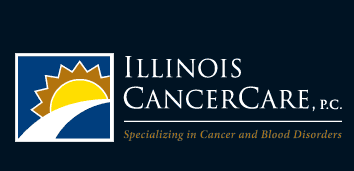
Principal Investigator: Bryan A. Faller
Phone: 309-243-3605
Illinois CancerCare-Ottawa Clinic Illinois CancerCare, P.C. is a comprehensive practice treating patients withcancer andblood diseases....
Click here to add this to my saved trials
1201 Camino de Salud Northeast
Albuquerque, New Mexico 87131
Albuquerque, New Mexico 87131
(505) 272-4946

Principal Investigator: Ian Rabinowitz
Phone: 505-925-0366
University of New Mexico Cancer Center It’s been 40 years since the New Mexico State...
Click here to add this to my saved trials
2545 Schoenersville Rd
Bethlehem, Pennsylvania 18017
Bethlehem, Pennsylvania 18017
(484) 884-2200

Principal Investigator: Christopher M. Reynolds
Phone: 734-712-3671
Lehigh Valley Hospital - Muhlenberg At Lehigh Valley Health Network, we continually go the extra...
Click here to add this to my saved trials
Bremerton, Washington 98310
Principal Investigator: Richard L. Deming
Phone: 308-398-6518
Click here to add this to my saved trials
666 Elm Street
Buffalo, New York 14263
Buffalo, New York 14263
(716) 845-2300

Principal Investigator: Marc S. Ernstoff
Phone: 800-767-9355
Roswell Park Cancer Institute Welcome to Roswell Park Cancer Institute (RPCI), America's first cancer center...
Click here to add this to my saved trials
1300 Jefferson Park Avenue
Charlottesville, Virginia 22908
Charlottesville, Virginia 22908
434-243-6784

Principal Investigator: Elizabeth M. Gaughan
Phone: 434-243-6303
University of Virginia Cancer Center We are fortunate in having state of the art clinical...
Click here to add this to my saved trials
1500 E Duarte Rd
Duarte, California 91010
Duarte, California 91010
(626) 256-4673

Principal Investigator: Kim A. Margolin
Phone: 800-826-4673
City of Hope Comprehensive Cancer Center City of Hope is a leading research and treatment...
Click here to add this to my saved trials
1 Hurley Plaza
Flint, Michigan 48503
Flint, Michigan 48503
(810) 262-9000

Principal Investigator: Christopher M. Reynolds
Phone: 734-712-3671
Hurley Medical Center From its founding in 1908, Hurley Medical Center has devoted itself to...
Click here to add this to my saved trials
2500 N State St
Jackson, Mississippi 39216
Jackson, Mississippi 39216
(601) 984-1000

Principal Investigator: Natale T. Sheehan
Phone: 601-815-6700
University of Mississippi Medical Center The University of Mississippi Medical Center, located in Jackson, is...
Click here to add this to my saved trials
200 North Park Street
Kalamazoo, Michigan 49007
Kalamazoo, Michigan 49007
(269) 382-2500

Principal Investigator: Kathleen J. Yost
Phone: 616-391-1230
West Michigan Cancer Center In 1994, Borgess Health Alliance and Bronson Healthcare Group opened the...
Click here to add this to my saved trials
524 South Park Street
Kalamazoo, Michigan 49007
Kalamazoo, Michigan 49007
(269) 341-7654

Principal Investigator: Kathleen J. Yost
Phone: 616-391-1230
Bronson Methodist Hospital Our healthcare system serves patients and families throughout southwest Michigan and northern...
Click here to add this to my saved trials
1800 West Charleston Boulevard
Las Vegas, Nevada 89102
Las Vegas, Nevada 89102
(702) 383-2000

Principal Investigator: John A. Ellerton
Phone: 702-384-0013
University Medical Center of Southern Nevada University Medical Center is dedicated to providing the highest...
Click here to add this to my saved trials
529 West Markham Street
Little Rock, Arkansas 72205
Little Rock, Arkansas 72205
(501) 686-7000
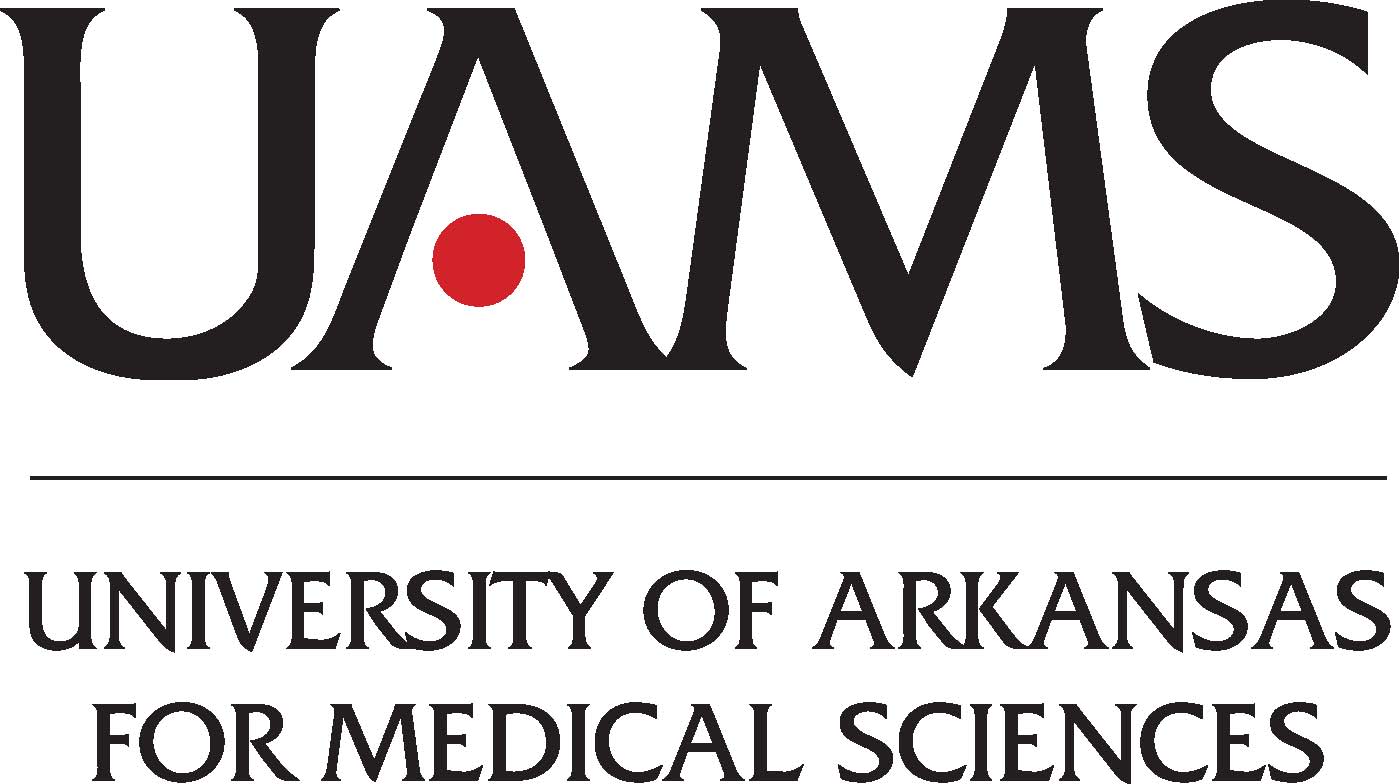
Principal Investigator: Issam Makhoul
Phone: 501-686-8274
University of Arkansas for Medical Sciences The University of Arkansas for Medical Sciences (UAMS) in...
Click here to add this to my saved trials
4805 Northeast Glisan Street
Portland, Oregon 97213
Portland, Oregon 97213
(503) 215-1111

Principal Investigator: Alison K. Conlin
Phone: 503-215-2614
Providence Portland Medical Center We strive to give those we serve exceptional, compassionate health care...
Click here to add this to my saved trials
3181 Southwest Sam Jackson Park Road
Portland, Oregon 97239
Portland, Oregon 97239
503 494-8311

Principal Investigator: Matthew H. Taylor
Phone: 503-494-1080
Oregon Health and Science University In 1887, the inaugural class of the University of Oregon...
Click here to add this to my saved trials
593 Eddy Street
Providence, Rhode Island 02903
Providence, Rhode Island 02903
401-444-4000

Principal Investigator: Maria Constantinou
Phone: 401-444-1488
Rhode Island Hospital Founded in 1863, Rhode Island Hospital in Providence, RI, is a private,...
Click here to add this to my saved trials
401 College Street
Richmond, Virginia 23298
Richmond, Virginia 23298
(804) 828-0450

Principal Investigator: Andrew Poklepovic
Phone: 804-675-5646
Virginia Commonwealth University Massey Cancer Center Founded in 1974, VCU Massey Cancer Center is a...
Click here to add this to my saved trials
60 Crittenden Blvd # 70
Rochester, New York 14642
Rochester, New York 14642
(585) 275-2121

Principal Investigator: Paul M. Barr
Phone: 585-275-5830
University of Rochester The University of Rochester is one of the country's top-tier research universities....
Click here to add this to my saved trials
Seattle, Washington 98104
Principal Investigator: Alison K. Conlin
Phone: 206-215-3086
Click here to add this to my saved trials
3900 W Avera Drive
Sioux Falls, South Dakota 57108
Sioux Falls, South Dakota 57108
(605) 322-4700

Principal Investigator: Benjamin M. Solomon
Phone: 888-634-7268
Avera Cancer Institute Avera, the health ministry of the Benedictine and Presentation Sisters, is a...
Click here to add this to my saved trials
808 North 39th Avenue
Yakima, Washington 98902
Yakima, Washington 98902
Principal Investigator: John A. Keech
Phone: 509-574-3535
Click here to add this to my saved trials
'Aiea, Hawaii 96701
Principal Investigator: Jeffrey L. Berenberg
Phone: 808-487-7447
Click here to add this to my saved trials
98-1079 Moanalua Road
'Aiea, Hawaii 96701
'Aiea, Hawaii 96701
Principal Investigator: Jeffrey L. Berenberg
Phone: 808-486-6000
Click here to add this to my saved trials
2226 Liliha Street
'Aiea, Hawaii 96701
'Aiea, Hawaii 96701
Principal Investigator: Jeffrey L. Berenberg
Phone: 808-678-9000
Click here to add this to my saved trials
'Aiea, Hawaii 96701
Principal Investigator: Jeffrey L. Berenberg
Phone: 808-539-2273
Click here to add this to my saved trials
Aberdeen, Washington 98520
Principal Investigator: Alison K. Conlin
Phone: 360-412-8958
Click here to add this to my saved trials
Adrian, Michigan 49221
Principal Investigator: Rex B. Mowat
Phone: 517-265-0116
Click here to add this to my saved trials
Albany, New York 12208
Principal Investigator: Lawrence E. Garbo
Phone: 518-489-3612
Click here to add this to my saved trials
Albuquerque, New Mexico 87109
Principal Investigator: Ian Rabinowitz
Phone: 505-272-0530
Click here to add this to my saved trials
Albuquerque, New Mexico 87110
Principal Investigator: Montaser Shaheen
Phone: 505-272-6972
Click here to add this to my saved trials
Albuquerque, New Mexico 87102
Principal Investigator: Ian Rabinowitz
Phone: 505-272-0530
Click here to add this to my saved trials
Allentown, Pennsylvania 18103
Principal Investigator: Christopher M. Reynolds
Phone: 734-712-3671
Click here to add this to my saved trials
Ames, Iowa 50010
Principal Investigator: Debra M. Prow
Phone: 515-956-4132
Click here to add this to my saved trials
Ames, Iowa 50010
Principal Investigator: Debra M. Prow
Phone: 515-956-4132
Click here to add this to my saved trials
Anaconda, Montana 59711
Principal Investigator: Benjamin T. Marchello
Phone: 406-969-6060
Click here to add this to my saved trials
Anacortes, Washington 98221
Principal Investigator: Alison K. Conlin
Phone: 907-212-6871
Click here to add this to my saved trials
Anaheim, California 92806
Principal Investigator: Gary L. Buchschacher
Phone: 800-398-3996
Click here to add this to my saved trials
Anchorage, Alaska 98508
Principal Investigator: Alison K. Conlin
Phone: 907-212-6871
Click here to add this to my saved trials
Anchorage, Alaska 99504
Principal Investigator: Alison K. Conlin
Phone: 907-212-6871
Click here to add this to my saved trials
Anchorage, Alaska 99508
Principal Investigator: Alison K. Conlin
Phone: 907-212-6871
Click here to add this to my saved trials
Anchorage, Alaska 99508
Principal Investigator: Alison K. Conlin
Phone: 907-212-6871
Click here to add this to my saved trials
Anchorage, Alaska 99508
Principal Investigator: Alison K. Conlin
Phone: 907-212-6871
Click here to add this to my saved trials
Anchorage, Alaska 99508
Principal Investigator: Alison K. Conlin
Phone: 907-212-6871
Click here to add this to my saved trials
Anchorage, Alaska 99508
Principal Investigator: Alison K. Conlin
Phone: 907-212-6871
Click here to add this to my saved trials
Anchorage, Alaska 99508
Principal Investigator: Alison K. Conlin
Phone: 907-212-6871
Click here to add this to my saved trials
5301 McAuley Drive
Ann Arbor, Michigan 48197
Ann Arbor, Michigan 48197
734-712-3456
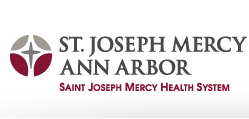
Principal Investigator: Christopher M. Reynolds
Phone: 734-712-3671
Saint Joseph Mercy Hospital St. Joseph Mercy Ann Arbor Hospital is a 537-bed teaching hospital...
Click here to add this to my saved trials
1500 East Medical Center Drive
Ann Arbor, Michigan 48109
Ann Arbor, Michigan 48109
800-865-1125

Principal Investigator: Leslie A. Fecher
University of Michigan Comprehensive Cancer Center The U-M Comprehensive Cancer Center's mission is the conquest...
Click here to add this to my saved trials
Antigo, Wisconsin 54409
Principal Investigator: Harish G. Ahuja
Phone: 715-623-9869
Click here to add this to my saved trials
Asheville, North Carolina 28803
Principal Investigator: Raymond Thertulien
Phone: 828-650-8037
Click here to add this to my saved trials
1625 Maple Lane
Ashland, Wisconsin 54806
Ashland, Wisconsin 54806
Principal Investigator: Bret E. Friday
Phone: 218-786-3308
Click here to add this to my saved trials
Ashland, Wisconsin 54806
Principal Investigator: Bret E. Friday
Phone: 218-786-3308
Click here to add this to my saved trials
Athens, Georgia 30607
Principal Investigator: Sharad A. Ghamande
Phone: 706-353-5006
Click here to add this to my saved trials
1000 Johnson Ferry Rd NE
Atlanta, Georgia 30342
Atlanta, Georgia 30342
(404) 851-8000

Principal Investigator: Ronald G. Steis
Phone: 404-303-3355
Northside Hospital Northside Hospital-Atlanta (in Sandy Springs) opened in 1970. The original facility had 250...
Click here to add this to my saved trials
Atlanta, Georgia 30322
Principal Investigator: Melinda L. Yushak
Phone: 404-778-1868
Click here to add this to my saved trials
Click here to add this to my saved trials
Auburn, California 95602
Principal Investigator: Jorge A. Garcia-Young
Phone: 415-209-2686
Click here to add this to my saved trials
Auburn, California 95603
Principal Investigator: Jorge A. Garcia-Young
Phone: 415-209-2686
Click here to add this to my saved trials
Auburn, Washington 98001
Principal Investigator: John A. Keech
Phone: 253-887-9333
Click here to add this to my saved trials
Augusta, Georgia 30912
Principal Investigator: Sharad A. Ghamande
Phone: 706-721-2388
Click here to add this to my saved trials
1501 S Potomac St
Aurora, Colorado 80012
Aurora, Colorado 80012
(303) 695-2600

Principal Investigator: Keren Sturtz
Phone: 303-777-2663
Medical Center of Aurora At The Medical Center of Aurora and Centennial Medical Plaza patients...
Click here to add this to my saved trials
12605 East 16th Avenue
Aurora, Colorado 80045
Aurora, Colorado 80045
720-848-0000

Principal Investigator: Steven R. Schuster
Phone: 720-848-0650
University of Colorado Hospital, Site Top medical professionals, superior medicine and progressive change make University...
Click here to add this to my saved trials
2000 Ogden Ave
Aurora, Illinois 60504
Aurora, Illinois 60504
(630) 978-6200

Principal Investigator: Kendrith M. Rowland
Phone: 630-978-6212
Rush - Copley Medical Center Rush-Copley is proud to be the leading provider of health...
Click here to add this to my saved trials
Aventura, Florida 33180
Principal Investigator: Michael A. Schwartz
Phone: 305-674-2625
Click here to add this to my saved trials
Bainbridge Island, Washington 98110
Principal Investigator: John A. Keech
Phone: 206-342-6954
Click here to add this to my saved trials
3325 Pocahontas Road
Baker City, Oregon 97814
Baker City, Oregon 97814
Principal Investigator: Benjamin T. Marchello
Phone: 734-712-3671
Click here to add this to my saved trials
Baldwin Park, California 91706
Principal Investigator: Gary L. Buchschacher
Phone: 800-398-3996
Click here to add this to my saved trials
6701 N Charles St
Baltimore, Maryland 21204
Baltimore, Maryland 21204
(443) 849-2000
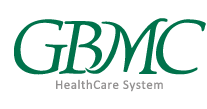
Principal Investigator: Mei Tang
Phone: 443-849-3706
Greater Baltimore Medical Center The 255-bed medical center (acute and sub-acute care) is located on...
Click here to add this to my saved trials
Baltimore, Maryland 21229
Principal Investigator: Carole B. Miller
Phone: 410-368-2910
Click here to add this to my saved trials
Baltimore, Maryland 21237
Principal Investigator: Michael B. Atkins
Phone: 443-777-7364
Click here to add this to my saved trials
4305 New Shepherdsville Road
Bardstown, Kentucky 40004
Bardstown, Kentucky 40004
Principal Investigator: Richard L. Deming
Phone: 308-398-6518
Click here to add this to my saved trials
Baton Rouge, Louisiana 70805
Principal Investigator: David S. Hanson
Phone: 225-215-1353
Click here to add this to my saved trials
Baton Rouge, Louisiana 70809
Principal Investigator: David S. Hanson
Phone: 225-215-1353
Click here to add this to my saved trials
Baton Rouge, Louisiana 70809
Principal Investigator: David S. Hanson
Phone: 225-215-1353
Click here to add this to my saved trials
4950 Essen Lane
Baton Rouge, Louisiana 70809
Baton Rouge, Louisiana 70809
Principal Investigator: David S. Hanson
Phone: 225-757-0343
Click here to add this to my saved trials
Baton Rouge, Louisiana 70809
Principal Investigator: Marc R. Matrana
Phone: 225-761-5346
Click here to add this to my saved trials
Baton Rouge, Louisiana 70816
Principal Investigator: Marc R. Matrana
Phone: 225-761-5346
Click here to add this to my saved trials
Baton Rouge, Louisiana 70836
Principal Investigator: Marc R. Matrana
Phone: 504-703-8712
Click here to add this to my saved trials
265 Fremont St
Battle Creek, Michigan 49017
Battle Creek, Michigan 49017
(269) 245-8166

Principal Investigator: Kathleen J. Yost
Phone: 616-391-1230
Bronson Battle Creek As a proud member of the Battle Creek community, we believe everyone...
Click here to add this to my saved trials
Beachwood, Ohio 44122
Principal Investigator: Henry B. Koon
Phone: 800-641-2422
Click here to add this to my saved trials
Beaver, Pennsylvania 15009
Principal Investigator: Diwakar Davar
Phone: 412-692-2001
Click here to add this to my saved trials
2500 Bellevue Medical Center Drive
Bellevue, Nebraska 68123
Bellevue, Nebraska 68123
Principal Investigator: Alissa S. Marr
Phone: 402-559-6941
Click here to add this to my saved trials
Bellevue, Washington 98004
Principal Investigator: John A. Keech
Phone: 425-688-5407
Click here to add this to my saved trials
Bellevue, Washington 98005
Principal Investigator: Keith S. Lanier
Phone: 503-215-6412
Click here to add this to my saved trials
Bellflower, California 90706
Principal Investigator: Gary L. Buchschacher
Phone: 800-398-3996
Click here to add this to my saved trials
Bellingham, Washington 98225
Principal Investigator: Alison K. Conlin
Phone: 360-715-4133
Click here to add this to my saved trials
Bemidji, Minnesota 56601
Principal Investigator: Preston D. Steen
Phone: 218-333-5000
Click here to add this to my saved trials
Bend, Oregon 97701
Principal Investigator: Alison K. Conlin
Phone: 541-706-2909
Click here to add this to my saved trials
Berkeley, California 94704
Principal Investigator: Jorge A. Garcia-Young
Phone: 415-209-2686
Click here to add this to my saved trials
Bethlehem, Pennsylvania 18015
Principal Investigator: Sanjiv S. Agarwala
Phone: 610-954-3582
Click here to add this to my saved trials
Billings, Montana 59102
Principal Investigator: Keren Sturtz
Phone: 800-648-6274
Click here to add this to my saved trials
Birmingham, Alabama 35233
Principal Investigator: Robert M. Conry
Phone: 205-934-0220
Click here to add this to my saved trials
300 N. Seventh St.
Bismarck, North Dakota 58501
Bismarck, North Dakota 58501
(701) 323-6000

Principal Investigator: Preston D. Steen
Phone: 701-323-5760
Sanford Bismarck Medical Center Whether your stay in our hospital is one day for same...
Click here to add this to my saved trials
Bloomington, Illinois 61701
Principal Investigator: James L. Wade
Phone: 217-876-4740
Click here to add this to my saved trials
1505 Eastland Drive
Bloomington, Illinois 61701
Bloomington, Illinois 61701
309-662-2102
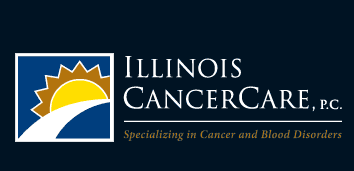
Principal Investigator: Bryan A. Faller
Phone: 309-243-3605
Illinois CancerCare-Bloomington Illinois CancerCare, P.C. is a comprehensive practice treating patients withcancer andblood diseases. Our...
Click here to add this to my saved trials
100 E Idaho St
Boise, Idaho 83712
Boise, Idaho 83712
(208) 381-2711
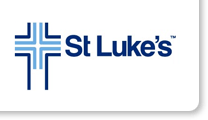
Principal Investigator: Alison K. Conlin
Phone: 907-212-6871
Saint Luke's Mountain States Tumor Institute For more than 100 years, St. Luke
Click here to add this to my saved trials
Boise, Idaho 83706
Principal Investigator: Benjamin T. Marchello
Phone: 734-712-3671
Click here to add this to my saved trials
Bonne Terre, Missouri 63628
Principal Investigator: Bryan A. Faller
Phone: 314-996-5569
Click here to add this to my saved trials
Boone, Iowa 50036
Principal Investigator: Debra M. Prow
Phone: 515-956-4132
Click here to add this to my saved trials
1100 Balsam Ave
Boulder, Colorado 80304
Boulder, Colorado 80304
(303) 440-2273

Principal Investigator: Keren Sturtz
Phone: 303-777-2663
Boulder Community Hospital Founded in 1922 as a community-owned and operated not-for-profit hospital, Boulder Community...
Click here to add this to my saved trials
915 Highland Blvd
Bozeman, Montana 59715
Bozeman, Montana 59715
(406) 414-5000

Principal Investigator: Benjamin T. Marchello
Phone: 406-969-6060
Bozeman Deaconess Hospital Bozeman Deaconess Hospital is a Joint Commission certified, licensed Level III trauma...
Click here to add this to my saved trials
Brainerd, Minnesota 56401
Principal Investigator: Bret E. Friday
Phone: 888-203-7267
Click here to add this to my saved trials